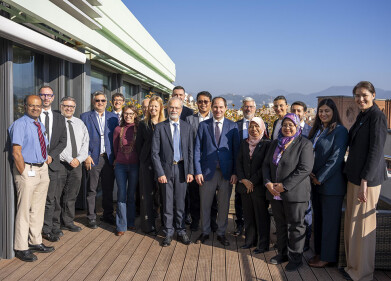Air clean up
Can Pollution Cause Infertility?
Dec 04 2017
Inhaling polluted air could contribute to infertility for “a significant number of couples”, according to a new Chinese study on sperm quality. Published in the journal BMJ Open, the study compared the sperm of 6,500 Taiwanese men and found that those who had been exposed to higher concentrations of particulate matter 2.5 (PM2.5) were more likely to have poorer quality sperm.
Although the data was compiled in Asia where air quality is generally of a lower standard than in Britain, the news should still ring alarm bells at home – especially since London was found to be more polluted than Beijing earlier this year and regularly exceeds unsafe levels of PM2.5.
Sperm in decline for some time
Recent studies have shown that sperm counts in western men have fallen by a staggering 60% over the past 40 years. Until now, a whole host of causes have been blamed for the phenomenon, including a poor diet, elevated stress levels, obesity, smoking habits, ingestion of hormone-disrupting chemicals and the proliferation of pesticides.
This study shows that pollution is perhaps to blame as well. “Although the effect estimates are small and the significance might be negligible in a clinical setting, this is an important public health challenge,” explained Dr Xiang Qian Lao. “Given the ubiquity of exposure to air pollution, a small effect size of PM2.5 on sperm normal morphology may result in a significant number of couples with infertility.”
An alarming study
Researchers at the Chinese University of Hong Kong analysed the sperm samples of 6,500 residents in Taiwan and found a direct correlation between the quality of sperm and exposure to pollution. To be precise, every 5ug/m3 hike in PM2.5 concentrations led to a 26% increase in the subject having sperm quality in the lowest 10% of the study pool.
The effect was only discernible when concentrations of PM2.5 rose above 25 ug/m3 – but London regularly exceeds that threshold. Indeed, just last month parts of the city reached peaks of 69ug/m3, fuelling fears that couples across the capital (and elsewhere in the country) could become infertile due to the air that they breathe.
Action needed now
The study is just the latest in a lengthy list of reasons why air pollution is detrimental to countless citizens all over the world, including an estimated 92% of the total global pollution. Since lower sperm counts have been linked to an increased chance of contracting diseases and a higher death rate, action now is imperative.
Introducing measures to improve air quality and reduce transport-related pollution must be a key priority for governments at home and abroad, while every one of us has our own responsibility to try and reduce our pollution footprint. As this study demonstrates, the future of the human race may quite literally depend on it.
Events
Feb 05 2025 Nantes, France
Feb 16 2025 Kampala, Uganda
Feb 26 2025 Chennai, India
Feb 26 2025 Tulsa, OK, USA
WATERTECH CHINA (GUANGDONG) 2025
Mar 05 2025 Guangdong, China












